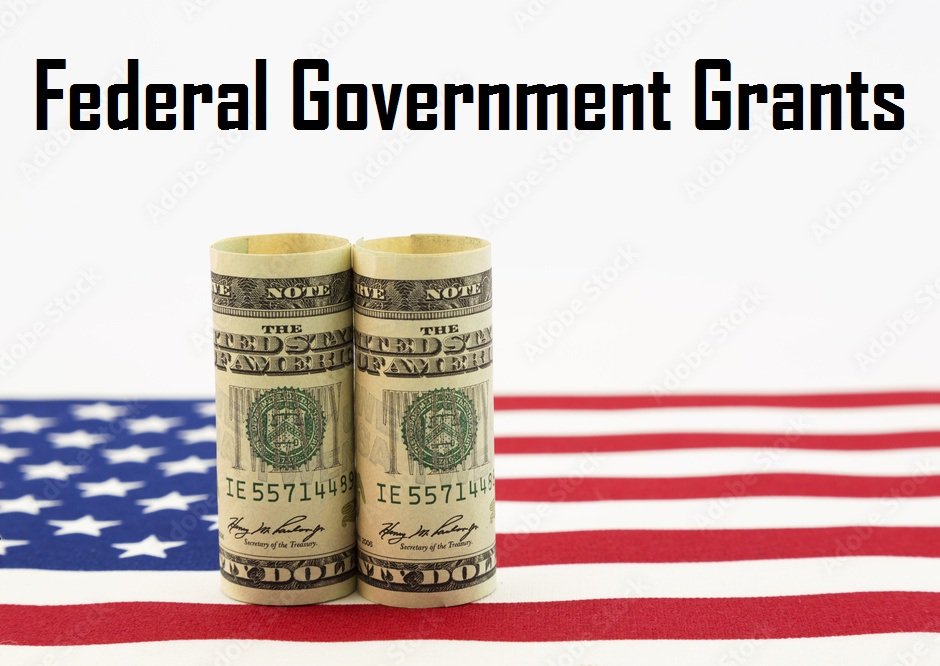Exploring the Eligibility Requirements for Federal Grants

The federal government in the U.S. offers extensive grant programs to finance various initiatives, from scientific investigation to development initiatives, education, and welfare services. Only some people are qualified to qualify for these grants, though.
In reality, understanding the criteria for eligibility for federal grants could be challenging, particularly for those unfamiliar with the procedure.
But don’t worry!
We’ll go into great detail about the eligibility requirements for federal grants in this blog. Let’s first understand what federal grants are.
What are Federal Grants?
Whether you’re an individual, a nonprofit organization, or a small company owner, join us on this exploration to learn how to open the doors to federal grant funding.
Federal grants are financial rewards provided to people, groups, and companies by the federal government of the U.S. for various goals. These grants are frequently given out following a competitive application procedure and are not repaid.
The federal government offers various grant programs that cover topics such as science and technology, education, healthcare, the arts and culture, community involvement, and social services. The National Institutes of Health (NIH), the National Science Foundation (NSF), the Department of Education, the Department of Health and Human Services (HHS), and the Department of Housing and Urban Development are some of the most prominent grant-making organizations (HUD).
Federal grants can provide essential financing for research, innovative thinking, and community development, assisting in addressing significant societal challenges and fostering economic growth.
But applying for and winning government grants can be complex and competitive. Individuals and organizations can improve their chances of obtaining funding and having a significant influence in their field by being aware of the eligibility rules and adhering to best practices for proposal writing and management.
To write a proposal for a grant, you first need to be aware with the application guidelines. In the next section, we will discuss about the application guideline.
Application guidelines for Federal Grants
The requirements for applying for federal grants differ based on the particular grant program and the grant-making organization’s goals and strategies. However, most government grant programs adhere to a few standard guidelines.
These involve submitting a potent and thorough grant application, offering a budget and timetable for the project or program, displaying agreement with the goals and aims of the grant program, and abiding by federal laws and reporting specifications throughout the grant period.
Before applying, it is crucial to thoroughly review the eligibility rules and submission requirements for each grant program. To improve your chances of success, you should also adhere to the best proposal writing and management practices.
After becoming familiar with the application guidelines, let’s check out the eligibility criteria for getting a federal grant.
Eligibility Requirements for Federal Grants
Depending on the particular grant program and the goals and strategies of the grant-making agency, the eligibility criteria for federal grants can differ significantly.
However, the majority of government grants adhere to a few standard requirements. We’ll go over the main criteria for eligibility for federal grants in depth in this section.
Citizenship or legal position
Federal grants are usually only available to people who are either U.S. citizens, permanent residents, or foreign nationals. Some grant program might also be accessible to people or groups based outside of the U.S., but their reach is typically more constrained.
Eligible Entity
Individuals, nonprofit organizations, for-profit companies, and local and state government agencies can apply for federal grants. Some funding programs, however, are only open to certain kinds of organizations.
For example, an initiative to fund scientific study is only available to universities or other research facilities.
The goal of the grant
Federal grants are frequently given out for particular initiatives or goals, such as scientific study, neighborhood improvement projects, or educational initiatives. In order to be considered for a grant, applicants must show that their initiative or program supports the goals and strategies of the program.
Cost-Effectiveness and Finances
Typically, grant applicants are required to submit a thorough budget detailing of their intended use of the grant money. This budget should show how the grant money will be used to accomplish the project’s objectives and results while being reasonable and cost-effective.
Qualifications and Experience
Depending on the grant program, applicants might need to meet specific requirements for education, work experience, or other qualifications in the area.
For example, an application to a grant program for funding scientific study might need a PhD in the area. In contrast, an application to a grant program for funding social development initiatives might need previous working experience with underserved areas.
Matching Funds
Some government grant programs demand that applicants submit matching funds or money from other resources that can be utilized to pay for the grant money’s expenses. Different amounts of matching money may be needed based on the grant program and the size of the undertaking.
Compliance with Federal Regulations
Grant applicants must abide by a number of federal laws, including those about labor laws, environmental protection, and civil rights. The ability and resources to abide by these rules for the entire grant project’s duration must be shown by applicants.
In summary, the eligibility criteria for federal grants are intricate and can differ significantly based on the particular grant program, the objectives, and the priorities of the grant-making organization.
Applicants can improve their chances of receiving funding and having a significant influence in their field by carefully examining the eligibility rules for each grant program and adhering to best practices for proposal writing and administration.
Conclusion
In summation, federal grants provide valuable financial opportunities for people and organizations engaged in a variety of endeavors, from community development to scientific study.
But obtaining federal grants necessitates being vigilant to the eligibility rules and application requirements for each grant program, as well as having a full grant proposal, a robust network of partners, and a grant management strategy.
People and organizations can improve their chances of obtaining funding and significantly influencing their field by adhering to best practices and asking for feedback and assessment at every stage of the grant application process.



